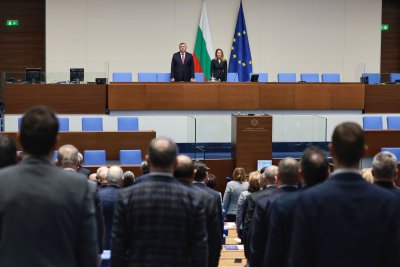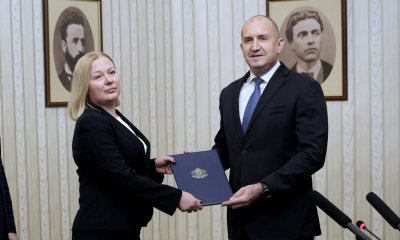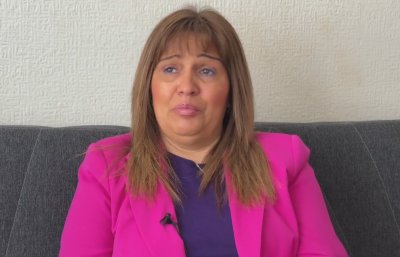The Ministry of Finance made a second attempt to present the state budget just before midnight. So far, the ministry has not commented on the texts. As expected, the budget has a deficit of 3%, in line with the requirements for joining the Eurozone. The increase in salaries for the Ministry of Interior, Defence, and Education is maintained. However, the increase of salaries in the state administration is capped at 5%. Economists have commented that the trend towards reducing deficits has not yet been reversed.
Both expenses and revenues are at record-high levels in this version of the state budget. Revenues are over 90 billion BGN, while expenditures are nearly 97 billion. Last year's forecast was for expenditure of 71 billion BGN. Over 44% of GDP will be redistributed through the budget, which is 4 percentage points more than permissible. The gap between revenues and expenditures is negative, amounting to 6.4 billion BGN, or 3% of GDP, but it still meets the requirements for the Eurozone entry. According to Prime Minister Rosen Zhelyazkov, the current budget is a result of poor financial policies from previous years.
The projections in the new budget are based on an expected 2.8% economic growth and 2.4% annual inflation. The maximum amount of debt the country can incur is nearly 60 billion BGN, of which 16.9 billion BGN is new debt.
Rosen Zhelyazkov, Prime Minister: "This year we are guided by the bill we need to pay for the reckless financial policies of previous years, particularly 2024. We begin 2025 with a 10 billion BGN deficit, which represents 3% deficit, which is 6 billion. Unpaid liabilities from last year, which are over 4 billion BGN.
The budget includes cuts to the salary increases in the state administration, an increase in toll fees, and the annual vignette for light vehicles. It also maintains the higher VAT rates for bread, flour, hotels, and restaurants.
Rosen Zhelyazkov, Prime Minister: "We should manage in an environment of clear consensus because the political goals for the nation's prosperity are greater than narrow partisan interests and require political compromises."
Economists in the "Day Begins" studio on BNT described the budget as insufficiently reform-oriented.
Lyubomir Datsov, member of the fiscal council: "The main reasons for this situation are not cancelled in the budget - the introduction of automatic formulas for income growth. The formula for the minimum wage, for the formation of police and defence salaries, is not cancelled."
Petar Ganev, IME: "For me the direction is correct, but it can certainly be bolder. Salaries in the Ministry of Interior and defense have not been touched."
Retaining the formulas for calculating salaries in certain sectors is expected to lead to greater distortions in the future, financial experts predicted.
Lyubomir Datsov, member of the Fiscal Council: "The budget will be successful if it is supported by reforms, meaning we will wait to see the governance programme and what is being proposed, because from the budget itself, the economic analysis does not make it clear what is happening."
Formally, the budget meets the criteria for Eurozone entry.
Petar Ganev, IME: "We don't see a big deficit reduction. At least at first glance it says 3% in several places, we will see on an accrual basis, but I believe that with this budget there is a likelihood of getting the green light, it has probably been coordinated at some stage."
The Ministry of Finance is expected to make recalculations and propose a new option after dropping the idea of changing the pension increase formula.









 Чуй новините
Чуй новините Подкаст
Подкаст






















